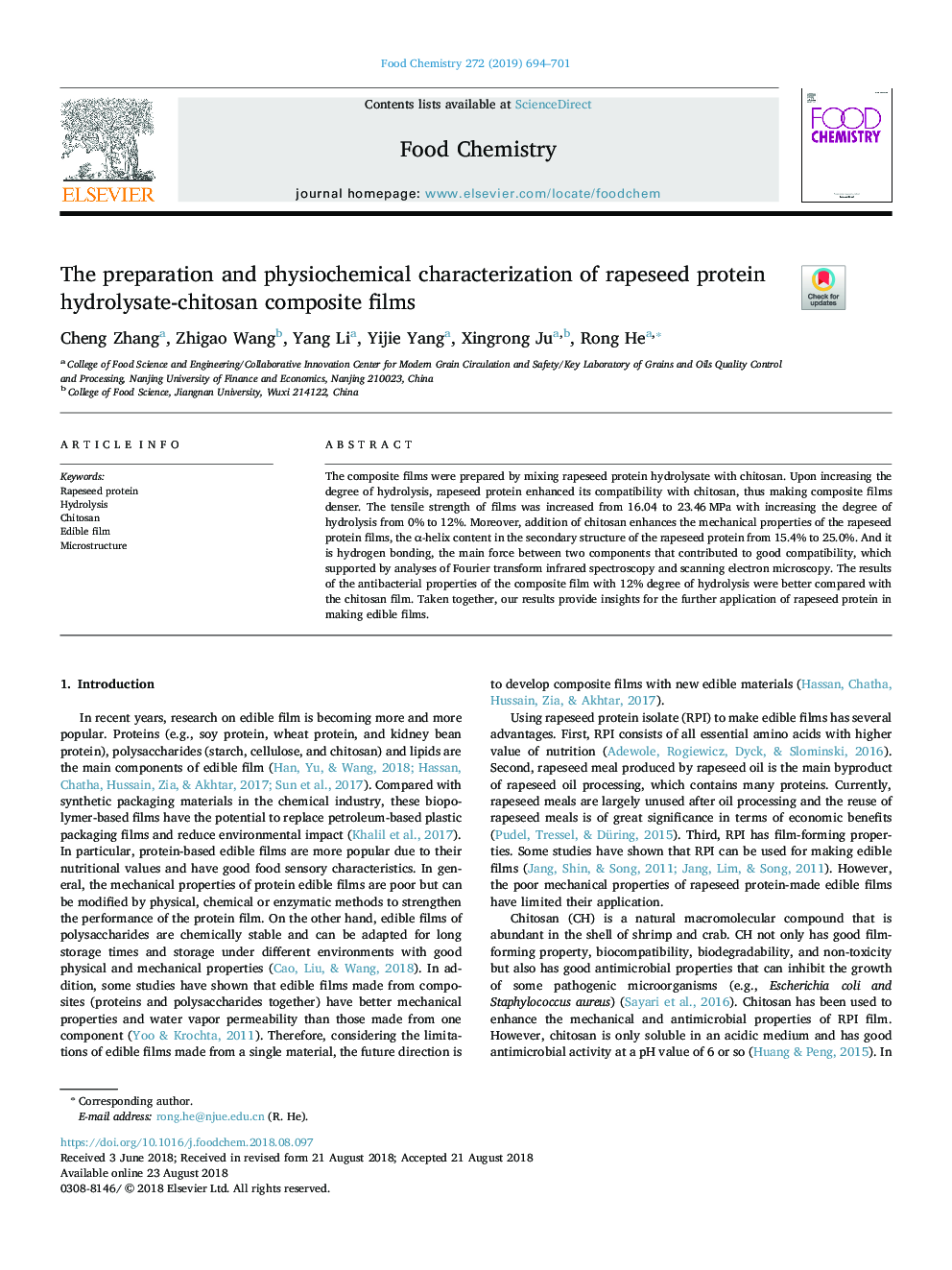| Article ID | Journal | Published Year | Pages | File Type |
|---|---|---|---|---|
| 11005656 | Food Chemistry | 2019 | 8 Pages |
Abstract
The composite films were prepared by mixing rapeseed protein hydrolysate with chitosan. Upon increasing the degree of hydrolysis, rapeseed protein enhanced its compatibility with chitosan, thus making composite films denser. The tensile strength of films was increased from 16.04 to 23.46â¯MPa with increasing the degree of hydrolysis from 0% to 12%. Moreover, addition of chitosan enhances the mechanical properties of the rapeseed protein films, the α-helix content in the secondary structure of the rapeseed protein from 15.4% to 25.0%. And it is hydrogen bonding, the main force between two components that contributed to good compatibility, which supported by analyses of Fourier transform infrared spectroscopy and scanning electron microscopy. The results of the antibacterial properties of the composite film with 12% degree of hydrolysis were better compared with the chitosan film. Taken together, our results provide insights for the further application of rapeseed protein in making edible films.
Related Topics
Physical Sciences and Engineering
Chemistry
Analytical Chemistry
Authors
Cheng Zhang, Zhigao Wang, Yang Li, Yijie Yang, Xingrong Ju, Rong He,
